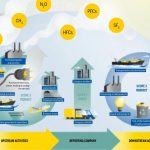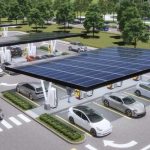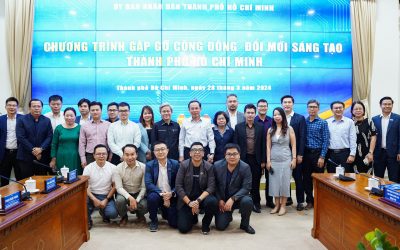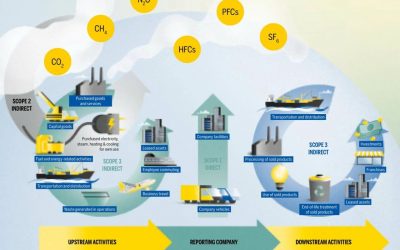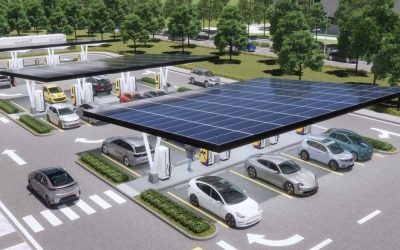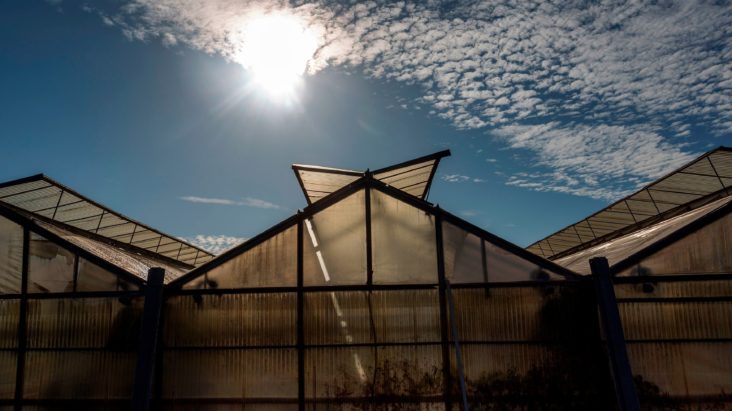
Tinted Solar Panels and the Future of
Leafy vegetables may not be cultivated in rows of crops beneath the sun in the future. Alternatively, they might be cultivated indoors behind tinted semi-transparent solar panels, allowing farmers to grow food while also producing electricity. That’s the future envisioned in a recent research that illustrates how this technology might assist farmers and the environment.
The Promise of Semi-Transparent Solar Panels
Semi-transparent solar panels are a newer technology. At least one firm sells them as a canopy for covering outdoor areas. But, a new study published earlier this month in the journal Advanced Energy Materials investigates whether tinted solar panels may be used on farms as well, as part of a bigger field of research known as agrivoltaics.
Growing Basil and Spinach under Tinted Solar Panels
The authors investigated how basil and spinach grow beneath the panels, and the results are promising. The scientists planted the plants in both a clear glass building and beneath tinted semi-transparent solar panels for the experiment and compared the outcomes. Depending on the colour, the panels may filter out different wavelengths of light. The orange-colored panels were chosen by the researchers to absorb largely blue and green light while allowing red light to pass through to the plants, which they prefer.
“Plants are green because they reflect back the green [light] and use all of the red,” author Elinor Thompson, a senior professor in science at the University of Greenwich, explained. “These transparent solar panels employ the wavelength of light that the plants don’t like, so they’re kind of orangey-red solar panels. That’s incredibly wonderful because it gives plants what they want while also giving you the remainder of the energy for power.”
Financial Benefits of Tinted Solar Panels
With less light coming in, the crops underwent morphological modifications. This includes lower biomass, such as a 15% and 26% reduction in the number of leaves (i.e. the bits we eat) generated by basil and spinach, respectively. This has the potential to reduce farmer profitability. When the electricity generated by the panels was factored in and sold back onto the grid or used to offset energy usage elsewhere, the crops resulted in a financial benefit of up to 2.5% for basil and a staggering 35% for spinach.
The Future of Agriculture and Clean Energy
This technology is still relatively new, but interest has surged in recent years, according to Thompson. As the urgency of the climate situation grows, engineers are attempting to think creatively about future land usage. Instead of a future in which electricity and crops must struggle for space, these solar panels provide a situation in which they may coexist. Yet, this does not imply that the technology is without flaws or restrictions. The roots of the spinach and basil plants shrank the most when compared to other portions of the plants. This might imply that this way of producing and generating power isn’t ideal for root veggies like potatoes and carrots.
Nonetheless, it is evident that the agricultural industry need considerable rethinking. Food production accounts for over 10% of total greenhouse gas emissions in the United States. Tinted solar panels will not solve the problem entirely; farmers must still use less fertiliser and develop measures that release less carbon pollution — or even absorb it from the environment. But, the agrivoltaics approach has an extra benefit: clean energy. It is something the world desperately needs more of.
See more


